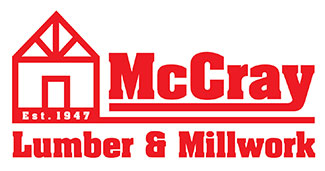Before the first chance of significant snowfall of the season, check to see if your deck is prepared to handle the weight or if it needs some repair work.
Unfortunately deck safety is typically neglected until a deck collapses. In recent years, the number of deck collapses has been on the rise because most homeowners don’t realize the life expectancy of a deck is only 10 to 15 years. They don’t perform regular maintenance on them nor do they stop to look them over. Often a board will come loose or a screw will disappear and busy homeowners tend to have the mentality of “I’ll get to it later” or “Oh well, no big deal.” But, just like a car, if you don’t perform maintenance on it, you can’t expect it to hold up for that long. For a car, it’s changing the oil and routine checkups that keep it running strong. For a deck, its proper wood, structural connectors, durable fasteners, and regular maintenance that keeps it standing strong.
The area in which you live has a significant effect on the life expectancy of a wood deck as well. In an area of a lot of moisture (rain and humidity), rotting of the wood and corrosion of the fasteners can make a deck’s safety questionable much quicker than living in a dry area. If your area sees snow and ice, you should be aware that even certain de-icers could cause corrosion in fasteners too.
When checking over a deck, you should always look for signs that might mean the deck is becoming unsafe. Look for missing or loose connectors, corrosion of fasteners, and rotting or cracked wood. These things need to be taken care of immediately to keep your family and friends out of harm’s way. Repair or retrofit your deck, or if it’s gotten too far, replace your deck to keep it safe.
If it comes down to it that you must replace your deck, consider switching from a wood deck to a composite deck. As a composite deck is made of a combination of plastic or PVC and wood, they tend to last longer. Requiring minimal maintenance, they won’t age or rot the way a traditional wood deck will. Or, another alternative that’s not quite as drastic as replacement is choosing to pressure-treat your deck’s lumber. This is something you would choose to do while your deck is still sound. Pressure treating increases the wood’s durability and lifespan without having to replace the entire deck.
Here in Kansas and Missouri, our decks are exposed to a variety of weather conditions each and every year. This winter, make sure your deck will hold up safely under the weight of the snow and ice before it’s too late. Call one of McCray Lumber and Millwork’s seven distribution centers including ones in Fairfax, Lawrence, Liberty, and Olathe for any replacement wood or building materials your deck needs, find your location here.

